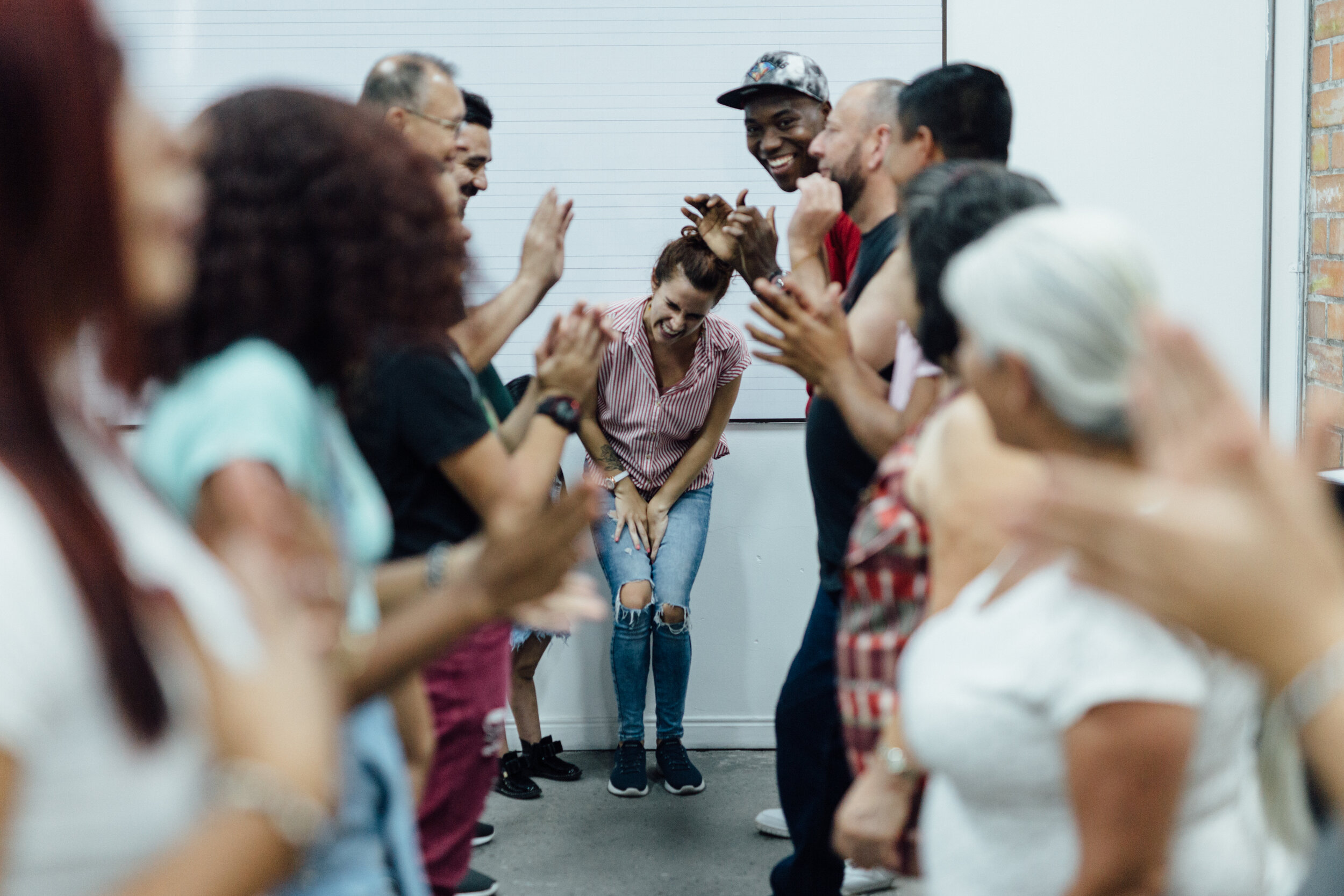
Art and peace after violent conflicts
From Understanding to Reconciling in Bosnia and Herzegovina, Colombia and Germany
GLOBE|forum & concert live during the Long Night of Science
16.07. from 07:30 to 09:00 p.m. / concert starts at 09:00 p.m.
What can art and art-based conflict-resolution instruments add to peace building beyond politics? In this roundtable discussion we want to reflect on the linkage between art & peace from different perspectives: academic researchers, practitioners, and artists. Our guests will also share their personal experience of conflict and reconciliation and offer a space for art to speak for itself by presenting short movies, paintings, and music.
The Panel
Ado Hasanović
Ado Hasanović is a Bosnian film director who lives in Rome. 1986 he was born in Srebrenica (Bosnia and Herzegovina). 2008 he graduated from Berlinale Talents Sarajevo, as well as from the Norwegian Nansen Academy in 2010 with a focus on inter-ethnic dialogue. Later, he studied directing at the Sarajevo Film Academy. He graduated with the short film "Mama" in 2013. In January 2014 he wrote specialized in directing at the Centro Sperimentale di Cinematografia National Film School in Rome. In 2017 he finished a Master in Dramaturgy as a visiting student at the Academy of Performing Arts in Sarajevo.
His short films The Angel of Srebrenica (2010), Blue Viking in Sarajevo (2012), Mama (2013), Breath of Life Srebrenica (2015), Pink Elephant (2017), Nomophobia (2019) and Let There Be Colour (2020) have been screened at festivals worldwide and won numerous international awards. In August 2019, he was awarded the Sarajevan Golden Medallion by the Mayor of Sarajevo Abdulah Skaka for his cultural achievements.
Lucía González
Truth Commission Colombia
Architect, with extensive experience in the social and cultural field, both in the private and public sectors. She was director of cultural entities such as the Pablo Tobón Uribe Theater, the Philharmonic Orchestra and the Museum of Antioquia. She has held public positions such as director of the Administrative Department of Planning of the Government of Antioquia; social director of the reconstruction of the Eje Cafetero after the earthquake of 1999 and general coordinator of Colombia Humanitaria, a program of attention to the effects of the winter wave in 2010.
She has served as director of the Casa de la Memoria Museum in Medellín; advisor for Life, Reconciliation and Coexistence for the Mayor's Office of Medellín; director of the Equity Project at the Centro De Fe y Cultura - Medellín; regional director of the National Victims Unit in Antioquia. She worked with the office of the High Commissioner building strengths for peace in the territories and in pedagogy of the Peace Agreements, and in the Secretariat of the National Peace Council, among others.
Maya Weisinger
Program Coordinator, Culture Action Europe, Germany
Maya Weisinger earned her master’s degree at the Willy Brandt School of Public Policy in Erfurt, Germany in the autumn of 2020. She is a community engagement specialist with a particular focus on projects at the intersection of social justice and the arts. She currently is a Project Coordinator with Culture Action Europe, a European network organization, focusing on informed opinion and debate about arts and cultural policy in the EU.
Before her work and research in Europe, she worked for ten years in the non-profit sector in the United States, focusing on ways of using art and creativity as pathways to diversity, equity and inclusion. As the Community Partnerships Coordinator at the Walker Art Center she created strategic policy focused on breaking down structural barriers that have traditionally marginalized people of color, indigenous and immigrant communities, and disabled individuals from large cultural institutions. Her current research focuses on the implementation of arts-based projects in the peacebuilding field.
Solveig Richter, Chair
Heisenberg Professor of International Relations and Transnational Politics at the University of Leipzig. Previously, she was Junior Professor of International Conflict Transformation at the Willy Brandt School of Public Policy at the University of Erfurt. Her research focuses on external democracy promotion in post-conflict and transition societies, post-conflict peace-building, the role of international organizations, especially the European Union, and the effectiveness of civil crisis and conflict management instruments. She has regional expertise on Eastern Europe, the countries of the Western Balkans, and Colombia. Since January 2019, she has been co-editor of the Zeitschrift für Friedens- und Konfliktforschung (ZeFKo), the most important journal in the field of peace and conflict research in the German-speaking world.
Coro Reconciliación
The choir Coro Reconciliación (reconciliation) was founded in July 2019 and is conducted by the Philharmonic Orchestra of Medellin. It understands itself as a project for which no political label such as "choir of victims" or "choir of ex-combatants" fits.
Although the choir is composed of victims of the armed conflict in Colombia and former combatants of the different armed groups, the members have decided to use the language of music to heal the scars left by past hostilities.
„Music as a universal language has become an instrument of reconciliation and forgiveness as it has served to defeat love, the earth, work and human emotions over time.“
Watch the panel and concert here on July 16 at 7:30 pm.
Or tune in on the YouTube Channel of the ReCentGlobe.





